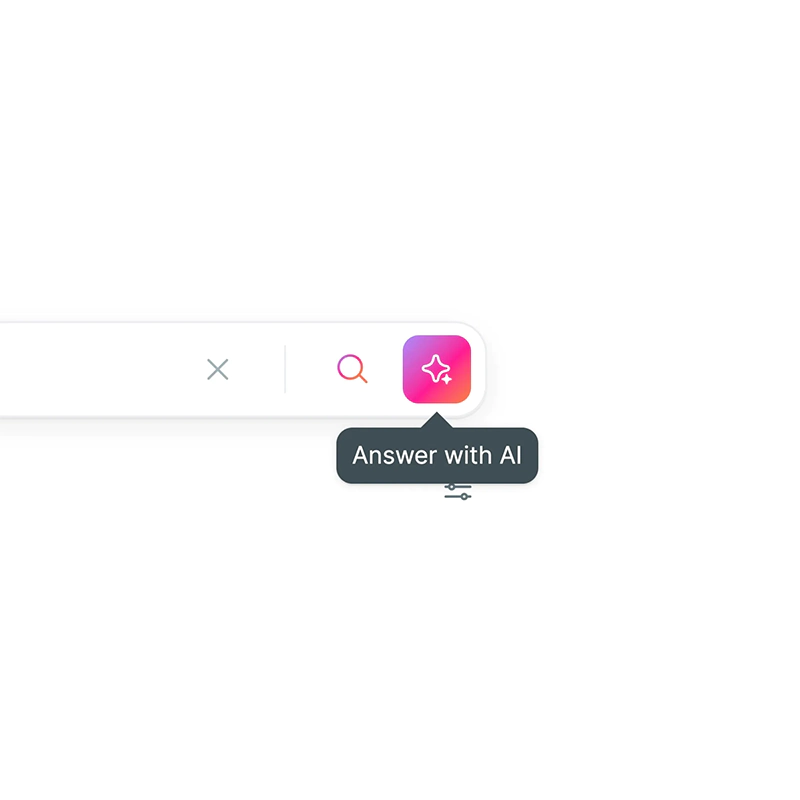
The internet's search engine is dominated by Google. For others to compete, they need to be different.
And to be different, means that they have introduce something new to the table, which should be something that make people look, and think. Brave the browser is an underdog if compared to Google Chrome, and its Brave Search search engine is a miniscule if compared to Google Search.
In a bold move that piggybacks the AI-hype, Brave announced that its privacy-focused AI search engine is getting an 'Answer with AI' feature, which uses generative AI technology to generate answers to queries directly in the search results.
By infusing AI into the search engine, Brave Search effectively becomes an AI-powered real-time answer search engine.
While the move follows what some others have done, including Google’s Search Generative Experience and Gemini, Microsoft’s Bing Copilot and Perplexity AI, Brave is able to stand out due to its privacy-first approach.
The company built its Answer with AI features without using Google’s or Microsoft’s search engines.
At this time, Brave Search is serving 10 billion search queries per year, and this number makes Brave’s AI-powered search engine the largest privacy-focused, AI search engines online.
To use Answer with AI, just enter a query into Brave Search as usual. You'll receive answers for your question-like queries above traditional search results.
You can also request answers on-demand by pressing the "Answer with AI" icon on the end of the search bar. pic.twitter.com/D7J4vaDNZE— Brave Software (@brave) April 17, 2024
Brave said that its AI can provide answers based on multiple intents a user might have, of which they fall into one of a handful of categories:
- Navigational: Queries for specific websites, such as “Facebook” or “Twitter”.
- Informational: For those seeking information that is either built around structured real-time information (e.g., currency conversion rates, or weather) or is question-like (e.g., “How do I find north when hiking?”).
- Commercial: Queries aimed at finding or researching products and services.
- Transactional: Queries intending to complete an action (e.g., buying a product).
Brave’s Answer with AI can be triggered by tapping the icon alongside the search bar. Answers generated will not be just text-based either.
Responses can be a mixture of text with other media types, including informational cards and images — similar to what you’d see on a Google results page, and that and AI's answer can even combine data from the index and geographical local results to provide rich information on points of interest.
"Wide-scale search engines have undergone many iterations: directory listings, ten blue links, query-dependent snippets, knowledge graphs and featured snippets," said Brave's Chief of Search Josep Pujol. '
"The Brave Search Answer with AI feature evolves this paradigm. An answer engine is a system that tries to answer a question rather than point to websites about the question. Thanks to the proliferation and quality of large language models (LLMs), search-integrated answer engines are now a possibility at scale."
“With the new Brave Search and its integration of Answer with AI, users get the best of both worlds: One place to get generative answers as well as up-to-date links, providing instant and highly relevant results,” Pujol added.
Available for free to everyone on desktop and mobile, Brave’s Answer with AI primarily supports English, French, German, Italian and Spanish.
The company explains that while its answer engine functionality is available in other languages, responses may appear in English.
Answer with AI is now available for free at https://t.co/tBr16frkJI to all desktop and mobile users regardless of their browser.
It currently supports searches in English, French, German, Italian, and Spanish.
Read more about it here: https://t.co/B7TpjSlB2c— Brave Software (@brave) April 17, 2024
Implementing AI into its search engine is an obvious step for Brave to remain competitive against Microsoft and Google, and Pujol admits it.
On the other hand, its advantage rests in the company’s execution.
"Brave is different more on the how than on the what,” he explained. “Brave offers choice and competition to a market dominated by Big Tech. Brave also offers strong and time-proven privacy standards. We do not collect user queries or create sessions or profiles in any shape or form."
Pujol acknowledges AI’s impact on search traffic but says Brave intends to be a good partner with publishers.
"Brave already goes further than most answer engines by directly attributing sources in its synthesized answers.” He said that this problem “cannot be fixed by a single entity, particularly one that has a relatively small market share such as Brave."
And because many in the search marketing and e-commerce communities have expressed anxiety about the future of the web because of AI search engines, Brave is playing it safe, by still providing traditional links to websites, and most importantly, it does not by default answer commercial or transactional queries with AI.
Pressing the "Answer with AI" icon (looks like stars) on the end of the search bar will ensure that you get the AI response at the top of a query.
— Brave Software (@brave) April 17, 2024
This should be good news for SEOs and online businesses.
Answer with AI isn’t Brave’s first use of the technology. It has an AI assistant called Leo built into its browser.
Brave has just recently completed rolling out Leo to all supported platforms.
The company says while the Brave Search answer engine is free to all users, a paid option with premium experiences could be made available in the future.
Read: AI-Based Search Engine Can Make Google Look 'Legacy And Old'